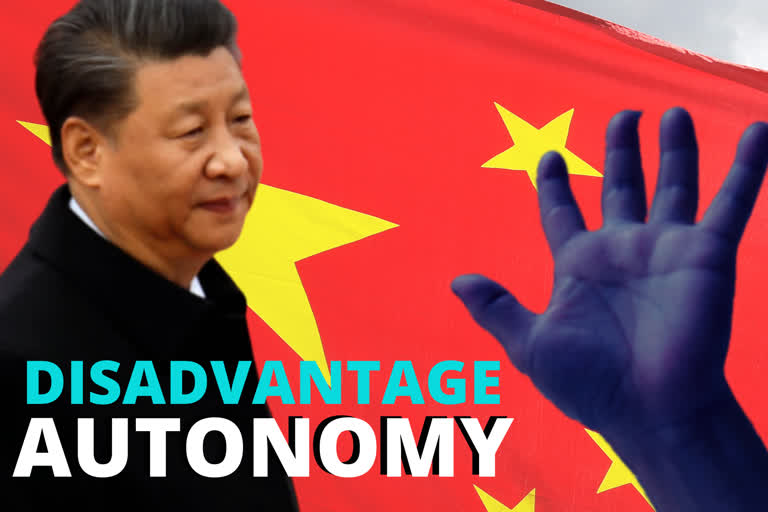Hong Kong:China on Tuesday approved a contentious national security law for Hong Kong that takes direct aim at some of the actions of anti-government protesters last year, in a move many see as Beijing’s boldest yet to erase the legal firewall between the semi-autonomous territory and the mainland’s authoritarian Communist Party system.
Details of the law remained under wraps until 11 pm (1500 GMT, 11:00 am EDT), when it was published and took effect immediately.
The text specifies that those who destroy government facilities and utilities would be considered subversive.
Damaging public transportation facilities and arson would constitute acts of terrorism.
Any person taking part in secessionist activities, whether organizing or participating, will violate the law regardless of whether violence is used.
Under the law, those found guilty of inciting secessionist, subversive, terrorist activities and colluding with foreign forces could face life imprisonment if they are deemed masterminds of such activities.
The legislation also states that Hong Kong’s government “shall take necessary measures to strengthen publicity, guidance, supervision and management” for schools, social groups, media, internet and other matters related to national security.
“We hope the law will serve as a deterrent to prevent people from stirring up trouble,” said Tam Yiu-Chung, Hong Kong’s sole representative on the Standing Committee “Don’t let Hong Kong be used as a tool to split the country.”
The law took effect ahead an hour before July 1, the 23rd anniversary of the territory’s passing from Britain to China. Amid protests in Hong Kong last year, demonstrators broke into the legislative building on the anniversary, spray painted slogans on the walls and heavily damaged the electronic voting system.
During months of protests, they frequently smashed subway ticket machines and electronic sensors at entry gates, and disrupted service by holding doors open so trains couldn’t leave the stations.
Read:China to impose US visa restrictions over Hong Kong
President Xi Jinping signed a presidential order promulgating the law after its approval by the Standing Committee of the National People’s Congress, the official Xinhua News Agency said. It was to be added to the Basic Law, Hong Kong’s constitution.
Hong Kong will establish a committee responsible for maintaining national security in the city. It will be chaired by chief executive Carrie Lam and will be accountable to and supervised by the Chinese government.
Passage of the law came amid fears in Hong Kong and abroad that it would be used to curb opposition voices in the financial hub. The U.S. has already begun moves to end special trade terms given to Hong Kong after the former British colony was returned to China in 1997.
Speaking in a video message to the U.N. Human Rights Council in Geneva, Lam said the law would “only target an extremely small minority” of lawbreakers, would not be retroactive, and that mainland legal bodies would only have jurisdiction in “rare, specified situations.”
Critics say it is the most significant erosion to date of Hong Kong’s British-style rule of law and the high degree of autonomy that Beijing promised Hong Kong would enjoy at least through 2047 under a “one country, two systems” framework.
Hong Kong pro-democracy activists Joshua Wong, Agnes Chow and Nathan Law issued statements on Facebook saying they would withdraw from their organization Demosisto, which then announced that it would disband with the loss of its top members.
Wong said “worrying about life and safety” has become a real issue and nobody will be able to predict the repercussions of the law, whether it is being extradited to China or facing long jail terms.
A group of about 30 pro-China supporters gathered at Hong Kong’s Tamar Park on Tuesday, waving Chinese flags. Organizers said that the rally was to show support of the national security law, and to celebrate Hong Kong’s return to China.
Also Read:Strict scrutiny of Chinese imports affects industries
